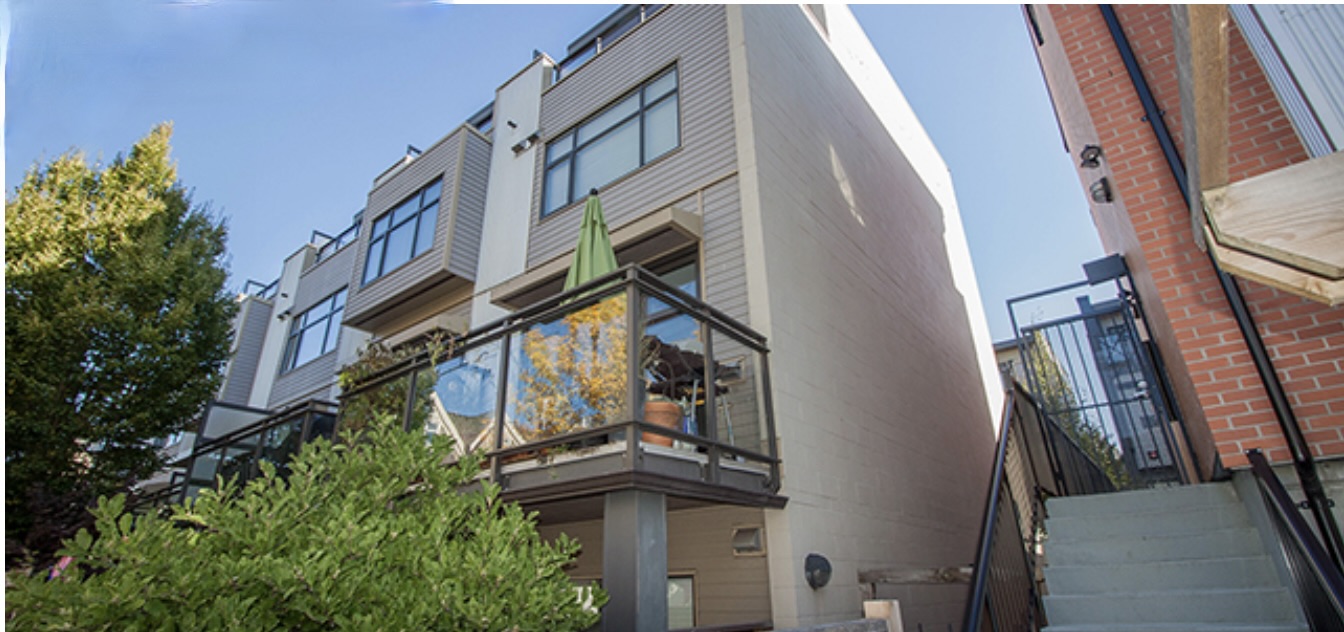
Dec 5, 2022: Council to decide on social housing, co-op, and non-profit housing in every Vancouver Neighbourhood
In his opening days as premier, David Eby has stormed through a flurry of announcements about housing, including ending the restriction on strata rental, and crime and safety. New legislation to increase the supply of housing in Vancouver, the Housing Supply Act, is expected to come into effect next spring. The Premier made it clear that municipalities who do not meet his housing targets will be forced to do so by provincial legislation.
Increasing the number of homes has been on the minds of all City Councillors, and Mayor Ken Sim has said he will work with Premier Eby on boosting supply. But in this story published in Business in Vancouver, retired City planner Arny Wise wonders if the new premier and mayor are up to the job required for such a complex undertaking. Wise describes Eby’s prescription to be little more than a continuation of former mayor Kennedy Stewart’s failed build-more-supply-at-any-cost strategy. Eby’s plan is doomed to fail for the same reasons: It doesn’t address affordability.
Councillor revives city-wide motion to eliminate barriers to multi-storey housing
On Tuesday, Dec. 6, Council will hear a motion from OneCity Cllr. Christine Boyle to allow for up to 12 storeys of social, non-profit (including supportive) and co-op housing in every Vancouver neighbourhood without the need for public hearings. It’s called Reducing Barriers and Deepening Affordability for Non-Profit, Co-op and Social Housing in Every Neighbourhood.
Read her motion here.
Cllr. Boyle is also asking that staff report on the feasibility of allowing additional height and FSR in other zoning districts, including RS/RT (currently for houses and duplexes with secondary suites and laneway houses such as Upper Kitsilano), RM3 and RM4 (three- to four-storey apartments) and (mixed commercial-residential zones) where 100 per cent of the residential floor area is developed as a co-op or non-profit (social/supportive).
Social Housing?
Social housing used to mean housing for low-income people until former Vision Mayor Gregor Robertson changed that definition in 2004. The City has continued to use what many see as a misleading definition when deciding upon new social housing projects. In the new math, developments described as social housing can (and usually do) have 70 per cent of the dwelling units rented at market rates, and only 30 per cent made available for lower income earners.
If Cllr. Boyle’s proposed amendment sounds hauntingly familiar, you are right. This is a revised version (some of the new changes are mentioned below) of the original motion Cllr. Boyle brought to Council over a year ago, in May 2021. Her first pitch failed to win Council’s support after residents, enraged by the amendment’s removal of public hearings, saw it as a threat to democracy. So why is this zombie motion back on its feet now? As the saying goes, timing is everything. With the premier’s Housing Supply Act right around the corner, virtually every councillor and mayor in the province is feeling pressure to build — cost be damned.
In a news release from OneCity, Cllr. Boyle goes on the offensive with the Mayor: “Mayor Ken Sim committed to non-partisanship, cooperation, and comity in his inaugural address. I would like to take him at his word. Here is an opportunity for him to live up to his commitments.”
The motion mentions that in a Women Transforming Cities municipal election survey in 2022, “a majority of incoming Council members answered yes to the following question: Will you commit to reducing barriers to providing non-market housing by delegating authority to City staff to approve non-profit, co-op, and social housing initiatives of up to 12 storeys in multi-family areas, and up to six storeys in other residential areas, without a rezoning requirement?
But in a Twitter post dated November 30th, ABC’s president, Kareem Allam, denied that his party had agreed to six and 12-storey housing across every neighbourhood.
Supportive Housing
Although not specifically named in the motion, supportive housing projects, which serve “the hardest to house” — those suffering from homelessness, addictions, and mental illness — can be extremely contentious, particularly when surrounding communities are not consulted. The problematic Marguerite Ford Apartments at 215 W. 2nd Ave, for instance, saw a huge number of calls to the VPD and complaints from neighbours in the two years after it opened.
The community group, the Kitsilano Coalition, is taking legal action against the City over the recently approved supportive/social housing development at 7th-8th and Arbutus St. The group alleges the City failed to ensure transparency, fairness, and disclosure of key information in its decision to approve the 13-storey project. In its suit, the coalition is asking the BC Supreme Court to rescind Council’s decision, which it hopes will lead to a new public hearing.
Boyle’s motion not only calls for supportive housing to be built anywhere in the city, it seeks to do so without public hearings. If approved as written, communities would be given no say in how their neighbourhoods develop.
Show us the money
It is not yet clear where the funding will come from to build Vancouver’s planned housing. The federal government announced it will contribute $10 billion to the provinces to speed up housing supply, but emphasized it relies on help from both local governments and developers. With the high cost of construction materials, rising inflation, and climbing interest rates, developers may not be so quick to jump on the bandwagon. And BC has had a terrible track record when it comes to allocating government funding for non-profit housing. A damning 2022 Ernst & Young report highlighted BC Housing’s mismanagement of funds, which led to the abrupt firing of almost the entire board by then-Minister of Housing, David Eby.
The former head of BC Housing, Shayne Ramsay, is now facing conflict of interest charges over his ties to Atira Women’s Resource Society, run by Janice Abbott, Ramsay’s wife. Atira, which is facing an audit over accountability and charges of financial mismanagement, has received more than $121 million in funding from BC Housing since 2018.
UKRA has several concerns about the revived motion:
The City’s problematic definition of social housing — a mix of 70 per cent market rental and 30 per cent low-income rental is deceptive and has yet to be changed.
The removal of public hearings is a threat to democracy and denies residents any say in how their city grows, including their own neighbourhoods.
The motion would see existing affordable housing — in already functioning neighbourhoods that have a variety of architecture and green spaces — demolished for more expensive, bland towers. This new approach to densification has created — to quote retired urban designer, Lothar Wiwjorra — “an anesthetized esthetic.” It threatens to displace hundreds of residents.
Given appropriate locations, supports, and amenities, social housing could be provided in every neighbourhood if the scale, form, and context of each neighbourhood were properly considered. This motion doesn’t do this as the proposed scale and form would have extremely negative consequences for the affected communities if public hearings were not required.
The motion undermines neighbourhood-based planning. Any allowance for buildings of this size should be considered through a neighbourhood-based public consultation process.
Photo: City of Vancouver.



No Comments